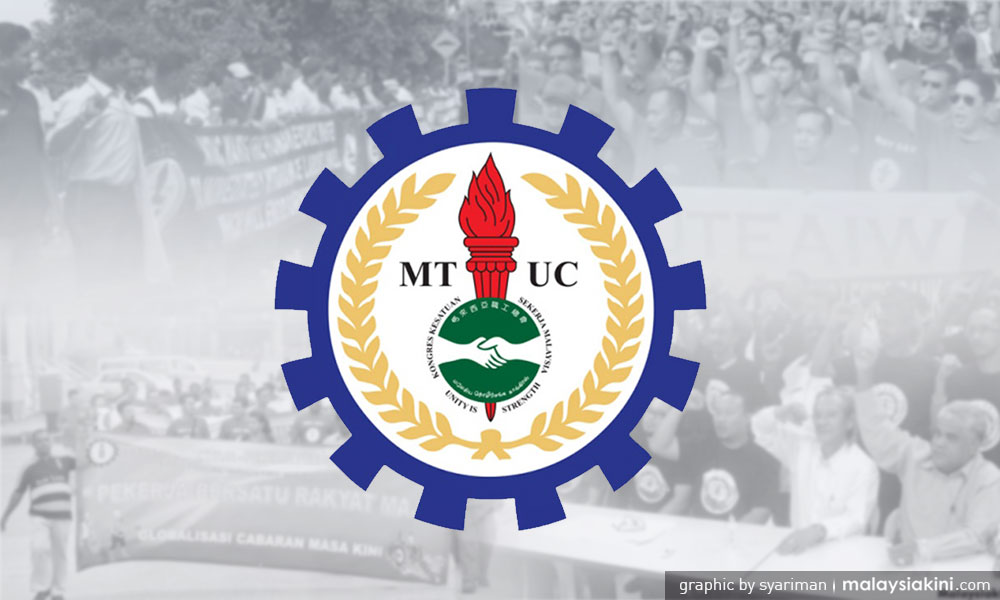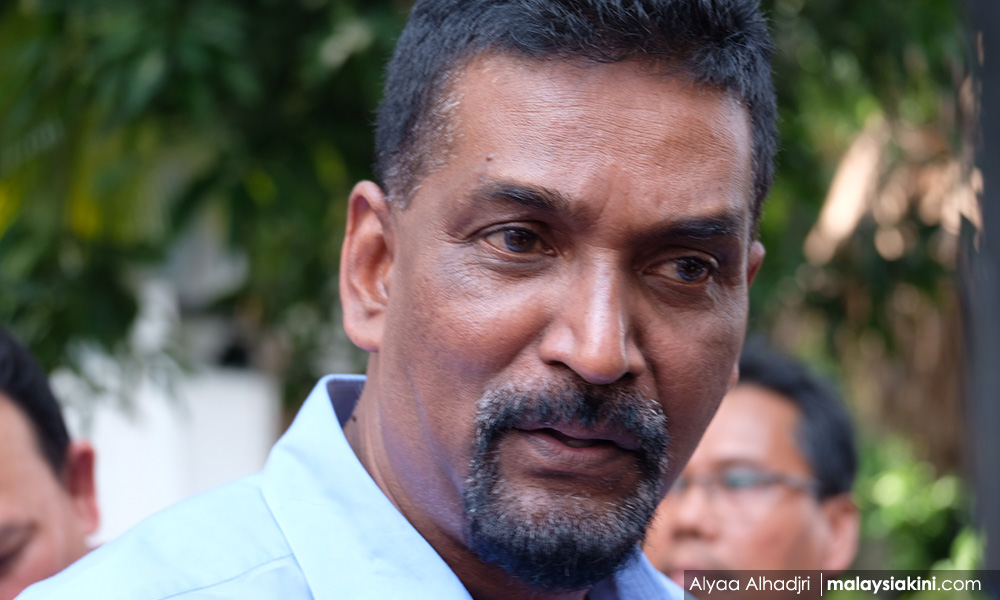Veteran unionists concede that there is much need to revitalise a workers movement hurt by low membership, factionalism and ineffective leadership, but are divided over the passing of the Trade Unions (Amendment) Bill 2022, which aims to abolish restrictions on the formation of trade unions.
Former Malaysian Trades Union Congress (MTUC) president Syed Shahir Syed Mohamud is one of those who feel that the amendments, which allow a multiplicity of trade unions, might prove a shot in the arm for a movement that needs it badly.
“There are those who are concerned that this would weaken unions, but the reality is that the movement is not as strong, united or visible in this era. I welcome a change if it means greater participation.
“Nowadays, the number of workers who are eligible to join a union but actually do so is very small, perhaps as low as 10 percent,” said Syed Shahir (above), who still serves as Institut Pemberdayaan Pekerja Selangor chairperson.
The MTUC was formed in 1949 and serves as an umbrella body with hundreds of affiliates and hundreds of thousands of members. Nonetheless, its visibility and effectiveness have been called into question.

“There are several issues we need to address, including weakened and divided leadership as well as the declining appeal of the trade union movement.
“The latest round of legal battles among MTUC was not good at all. We should resolve disputes at the table, going to the courts is not going to solve anything,” said Syed Shahir.
He was referring to the decision in August this year when the Shah Alam High Court nullified the MTUC triennial delegates’ conference held on July 2 and July 3 last year after another former MTUC president Halim Mansor led a group of the congress’ major affiliates to file two lawsuits against the then newly elected principal officer-bearers.
This was over allegations that they went against the congress’ constitution when calling for the conference.
“You can even call for a special delegates conference to resolve something this important. Now the tussles have weakened the movement further, even calling into question the legitimacy of the leadership,” said Syed Shahir.
He also took aim at career unionists who occupied important positions for many years despite failing to advance the cause of workers.
“That is not serving the members, if the leaders are hanging for the perks and powers of union leadership but not achieving much. After a period of time when you need to pass the baton to others, hopefully to a younger leadership that will know the real history and struggle of the workers movement in Malaysia,” he said.
Now 72, Syed Shahir has been involved in the workers movement since the 1970s when he was also a youth leader of Parti Sosialis Rakyat Malaysia (PSRM). He served as MTUC president from 2005 to 2010 and also had a three-year stint in the Dewan Negara from 2012 to 2015.
A delayed passage
In presenting the amendment to the Dewan Rakyat on Oct 10, Human Resources Minister V Sivakumar said the multiplicity of trade unions is expected to have a good impact - especially on workers - besides giving freedom to the workers to join or establish unions according to their own choice.
The bill contains the same proposed amendment which was read and passed in the Dewan Rakyat on Oct 5 last year. However, the bill did not make it to the Dewan Negara as Parliament was dissolved on Oct 10.

Former MTUC Sarawak leader Andrew Lo is another who is backing the changes.
“Multiplicity is never a bad thing for workers. It gives them the freedom to choose the most effective unions to represent and protect them. Factionalism will happen and has been happening with or without freedom of association.
“This is why the amendments to the TUA to allow freedom of association (multiplicity) must be seen as a huge positive, especially as 90 percent are non-unionised,” he told Malaysiakini.
“It may be bad for some union leaders who will face challenges to their current dominance. That is exactly what the current law/ framework has caused. You can’t form another union to challenge them under current law. If you complain against them, they will expel you and you have nowhere to go.
“These are the very union leaders that are against multiplicity. They claim to be experienced but antiquated experience is useless experience. We cannot look into the Trade Unions amendment from the eyes of some insecure union leaders,” said Lo.
A different view
Former MTUC secretary-general J Solomon served in the position from 2016 to 2020 and he feels that in the Malaysian context, having a multiplicity of unions in the same workplace can prove to be disastrous for the rights and wellbeing of workers.

“It fragments their collective strength, leaving them vulnerable to exploitation and diminishing their bargaining power.
“The presence of multiple unions can have detrimental consequences as it undermines the fundamental strength and solidarity that are essential to the effectiveness of unions.
“Moreover, it doesn't contribute to fostering healthy and constructive labour-management relations within the country. When numerous unions exist, each with a small membership base, they often face resource limitations and exhibit weakened bargaining power in negotiations with employers,” said Solomon.
Indeed, in raising objections to the amendment, the Coalition against Multiplicity of Unions chairperson, Rudy Rusly warned that it could create ‘puppet unions’ and proxies for employers and political parties.
Abdul Halim told Malaysiakini that while the new amendment might result in more unions it could dilute an already weakened movement.
“The multiplicity of trade unions will take away the Collective Agreement power as there may be no majority group representing more than 51 percent with the unions divided into small groups,” he said, saying that it echoed the principle of ‘divide and rule’.
He also denied that career unionism was a negative factor, saying that is a sincere responsibility and union leaders have an obligation to develop workers' conditions and fight for decent pay and social protections. - Mkini

No comments:
Post a Comment
Note: Only a member of this blog may post a comment.